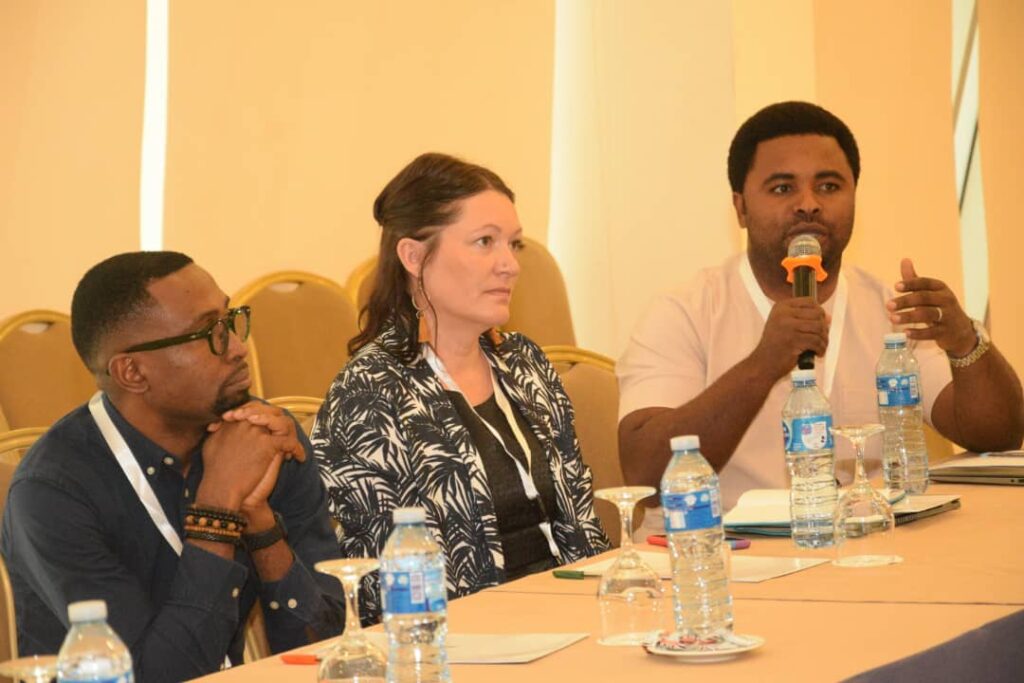Experts in the health sector gathered in Abuja on Thursday to celebrate the groundbreaking impact of AI-driven solutions in transforming population health management for critical diseases, especially HIV and Tuberculosis, across Nigeria.
The AI-driven technology was launched by Vantage Health Technologies in collaboration with the Network for Health Equity and Development (NHED), under the Institute of Human Virology Nigeria (IHVN)’s TB and HIV programmes.
Dr. Emmanuel Vincent, Project Director for IHVN’s Global Fund-supported TB/HIV programme, noted that the AI platform, currently adopted across all 36 states and the Federal Capital Territory, reaches over 5,300 healthcare facilities.
He explained that the platform is driving unprecedented improvements in efficiency, accountability, and coordination of the national TB/HIV response by combining real-time data insights, automated performance tracking, and streamlined feedback loops.
“At the heart of this ambitious effort is technology designed to maximize the impact of every working day. It’s not just a tool; it’s a system that fosters performance and accountability by delivering real-time program monitoring, AI-powered insights, and a human-centered management structure that enables our teams to focus on what truly matters: results,” Vincent said.
Since its rollout, the solution has achieved notable gains, including a 65% reduction in time spent on monthly programme reviews, 100% compliance with national reporting requirements ensuring standardized and timely submissions, and documentation of 10,607 performance standards enabling real-time visibility into implementation. Additionally, it facilitated 2,685 staff-initiated feedback interactions, 2,263 manager-led reviews, 11,307 supervision and mentorship engagements, promoted structured capacity-building, and escalated 260 critical issues to the executive level for timely resolution.
These outcomes represent a decisive shift toward data-driven decision-making, greater transparency, and faster response cycles across Nigeria’s health system.
Paul Bhuhi, Managing Director of Vantage Health Technologies, described the platform as more than a technological innovation — a catalyst for a new era of health system performance.
“Dashboards don’t do the work, people do. We are passionate about giving people the right information, at the right time, so that they can take actions that will have the best impact. This isn’t about replacing people — it’s about amplifying their work. We’ve built a solution that makes the invisible visible and enables coordinated, data-driven action at all levels,” he said.
Dr. Jerome Mafeni, Lead Technical Advisor at NHED, added, “This is about building a culture of performance. We’re seeing structured supervision, improved data discipline, and empowered frontline health workers who can solve problems early.”
Senior Special Assistant on Delivery and Coordination in the Office of the Vice President, Akubo Adegbe, noted that the model has the potential to strengthen other health programmes such as malaria and reproductive, maternal, newborn and child health (RMNCH), and could be adapted to improve initiatives in other sectors.
“This is an important event for me, as I want to understand how we can take the learnings from the health sector and apply them to other sectors,” Adegbe said.
Dr. Adebobola Bashorun, Federal Director and National Coordinator at the National HIV/AIDS, Viral Hepatitis and STIs Control Program (NASCP), recommended a centralized government approach: “Instead of different Government Agencies implementing these solutions independently, a centralized approach would facilitate rapid scale-up and scale-out, not only across health but also in other sectors.”
















